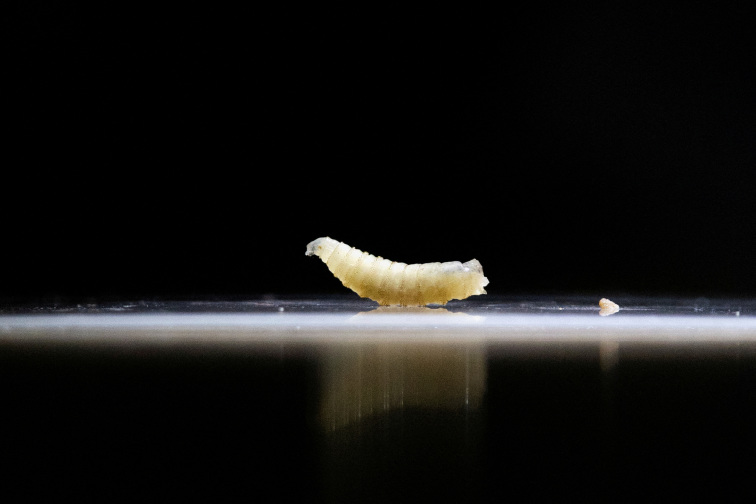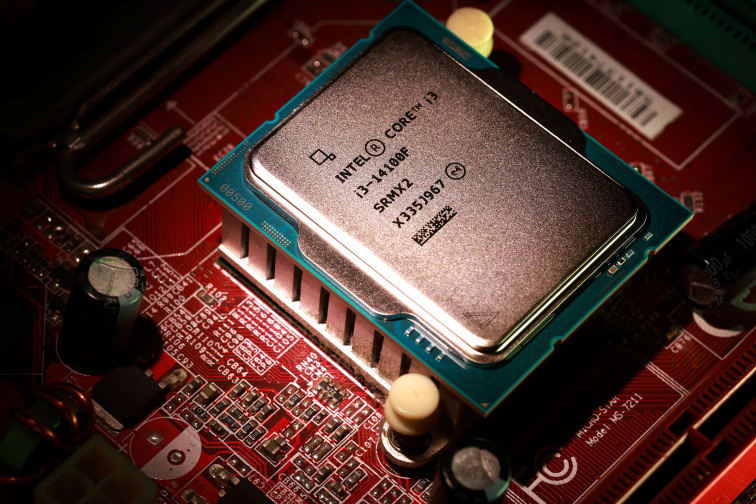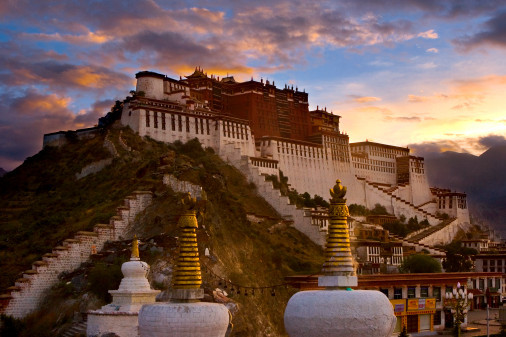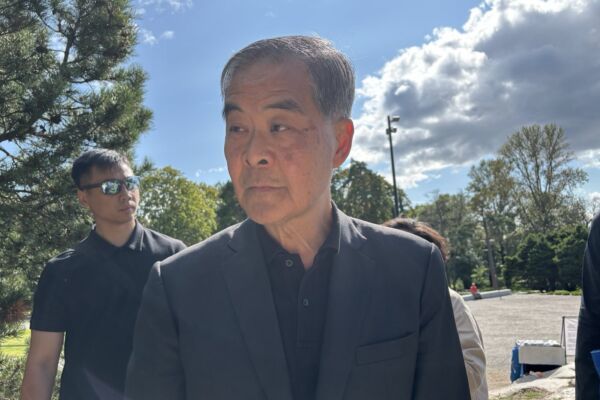Hu Chunhua (left) and Wang Yang (Free images)
[People News] Hu Chunhua, once known as the "discarded crown prince" of the Communist Youth League faction, was recently sent to inspect the Yarlung Tsangpo River hydropower project during his trip to Tibet. This should normally fall under the jurisdiction of Vice Premier Zhang Guoqing. At the same time, Party mouthpiece People’s Daily Online mentioned “Chunhua” in its editorial commemorating the 60th anniversary of the Tibet Autonomous Region, a move widely interpreted as signaling that Hu Chunhua may be groomed as a successor.
At noon on August 20, CCP leader Xi Jinping led a central delegation to Lhasa for the anniversary celebration. Accompanying him were Politburo Standing Committee members Wang Huning and Cai Qi; Politburo member and United Front chief Li Ganjie; Politburo member and Vice Premier Zhang Guoqing; NPC vice chairman Losang Jamcan; CPPCC vice chairman Hu Chunhua; Central Military Commission member Zhang Shengmin; Politburo member and Vice Premier He Lifeng; and Secretary of the Secretariat and State Councilor Wang Xiaohong.
Notably, Hu Chunhua, the former "crown prince" of the Youth League faction and now CPPCC vice chairman, also traveled with Xi. Rumors have long circulated that Hu is the candidate backed by anti-Xi factions as a potential successor.
Hu worked in Tibet for nine years from 1983 to 1992. Political commentator Chen Pokong noted in his program that Hu’s trip may be related to his long Tibet experience, but also carried symbolic weight.
“Hu Chunhua may enter the Politburo Standing Committee at the Fourth Plenum, possibly as CPPCC chairman. I’m not drawing a firm conclusion, but this trip to Tibet suggests such a possibility.”
Chen added that Xi is unlikely to support the choice of Hu by anti-Xi factions or Party elders, as Xi would prefer his own loyalists, such as Ding Xuexiang, to become general secretary.
“Of course, it’s not impossible that after Hu Chunhua enters the Standing Committee, he could emerge as one of the successors at the 21st Party Congress — either as general secretary or premier. It depends on the outcome of the coming years’ power struggles.”
On August 21, Xi returned to Beijing with Cai Qi, He Lifeng, and Wang Xiaohong, while the central delegation led by CPPCC chairman Wang Huning toured Tibet until the 23rd.
According to state media, on August 22 Hu Chunhua’s itinerary in Nyingchi included visiting the Milin Reservoir site to review plans for the downstream hydropower project on the Yarlung Tsangpo; inspecting villages, railway tunnels, government service centers, and parks.
Observers noted that among all the delegation’s assignments, Hu’s inspection of the hydropower project was the most significant.
The Yarlung Tsangpo project is expected to require an investment of 12 trillion yuan — equivalent to five Three Gorges Dams, four Qinghai-Tibet Railways, and ten Hong Kong–Zhuhai–Macau Bridges.
Commentator Wen Zhao pointed out that Vice Premier Zhang Guoqing is responsible for industry, state-owned asset supervision, market regulation, and production safety — meaning major projects like the Yarlung Tsangpo hydro station and Sichuan–Tibet Railway should normally fall under his purview.
“Hu Chunhua is only a CPPCC vice chairman, yet he was sent to inspect the most critical project, while Zhang was sidelined. This swap is a very striking signal,” Wen said.
As for whether Hu might climb higher or even succeed in leadership, Wen cautioned against over-interpreting a single signal, but noted that “an economic crisis could trigger a major CCP leadership reshuffle.”
On August 21, People’s Daily Online published an editorial titled Creating a Better Life, Realizing a Great Dream Together for the Tibet anniversary. Its opening line was: ‘Sixty years of fruitful spring and autumn, united in progress to write a new chapter.’
Analysts said the use of “spring” (Chun) in “fruitful spring and autumn” subtly pointed to Hu Chunhua, while “sixty years” coincides with his age of 62. The phrase “writing a new chapter in unity and progress” could hint at a political compromise between rival factions to maintain Party survival, with Hu as the chosen successor.
On June 23, the CPPCC Standing Committee held its 12th meeting in Beijing on deepening economic reforms, with Hu Chunhua presiding over the opening session — the first time he had done so. His leadership role in this reform-related meeting was seen as unusual and noteworthy.
Recently, the self-media account Shanhedongfu released a rumored new lineup of nine Standing Committee members, with Wang Yang as general secretary and Hu Chunhua as premier.










News magazine bootstrap themes!
I like this themes, fast loading and look profesional
Thank you Carlos!
You're welcome!
Please support me with give positive rating!
Yes Sure!